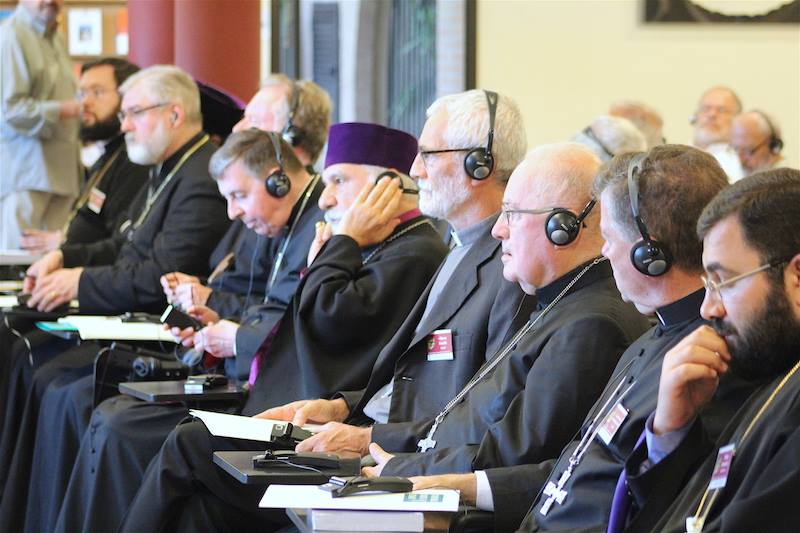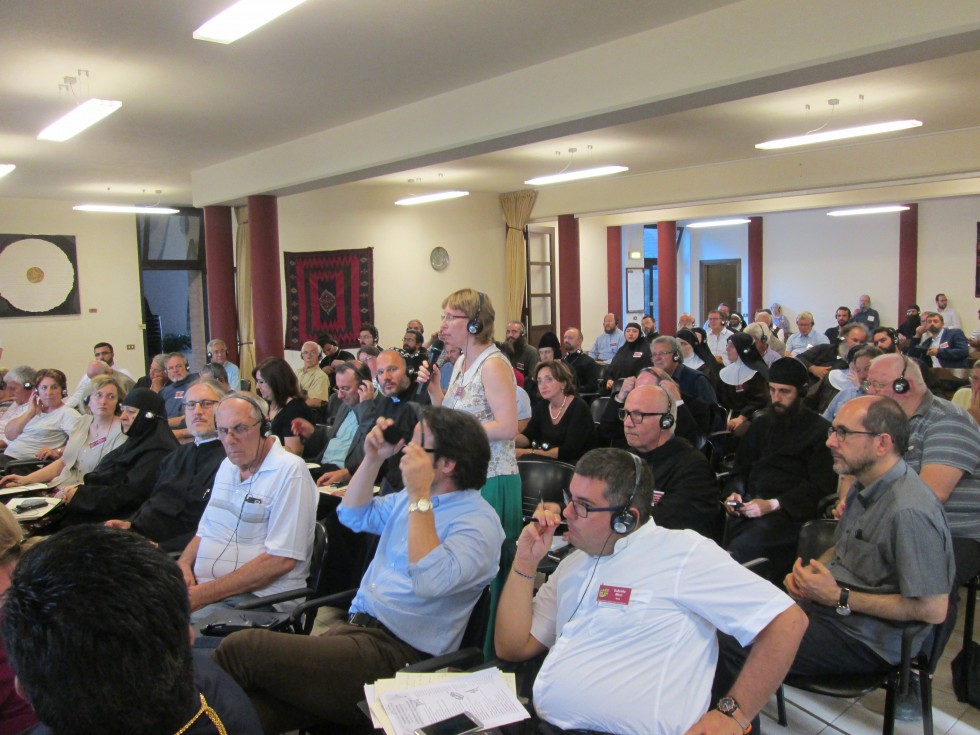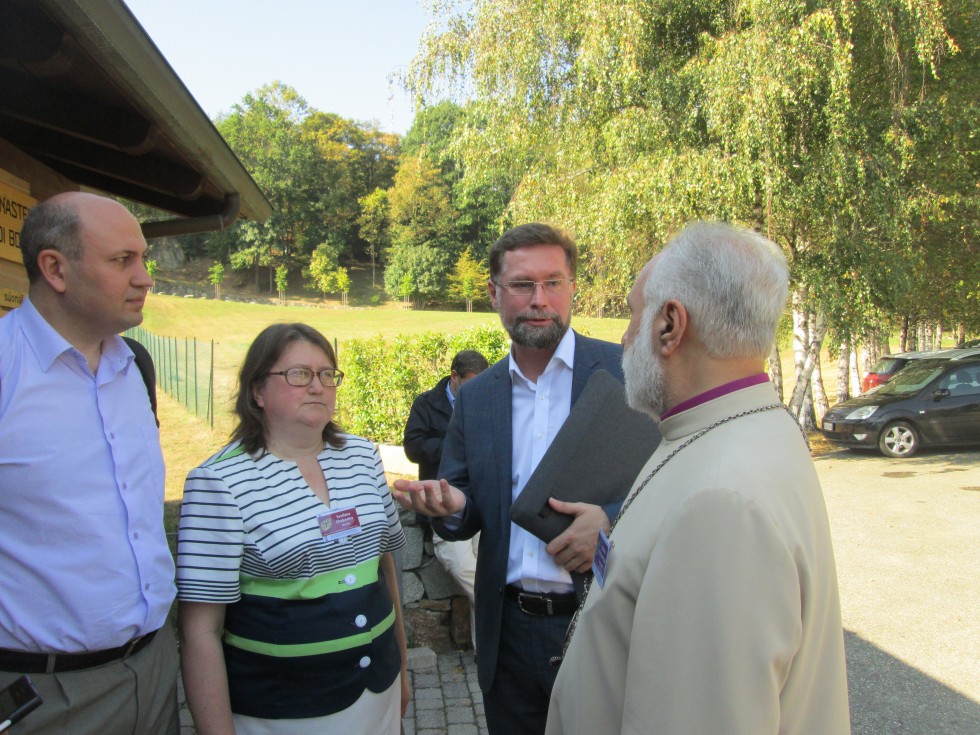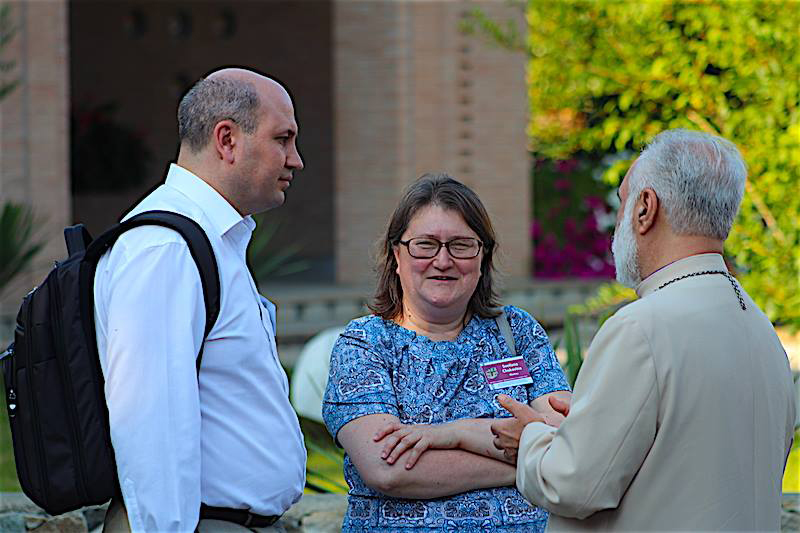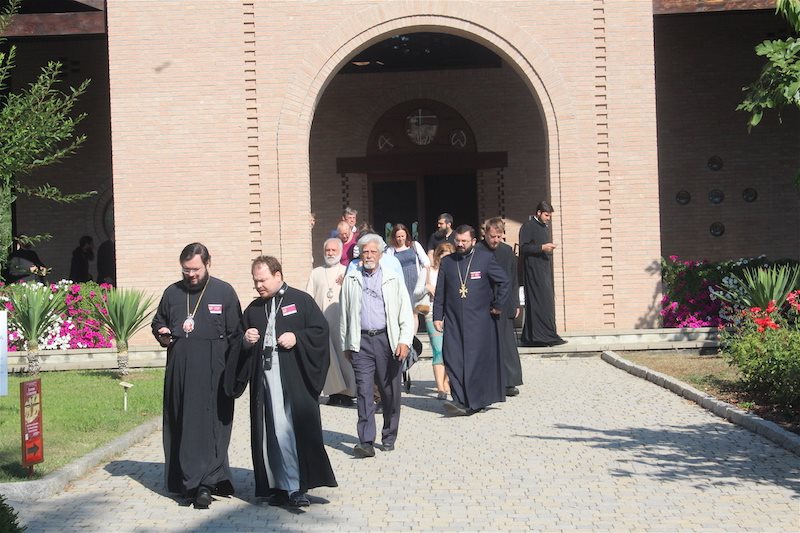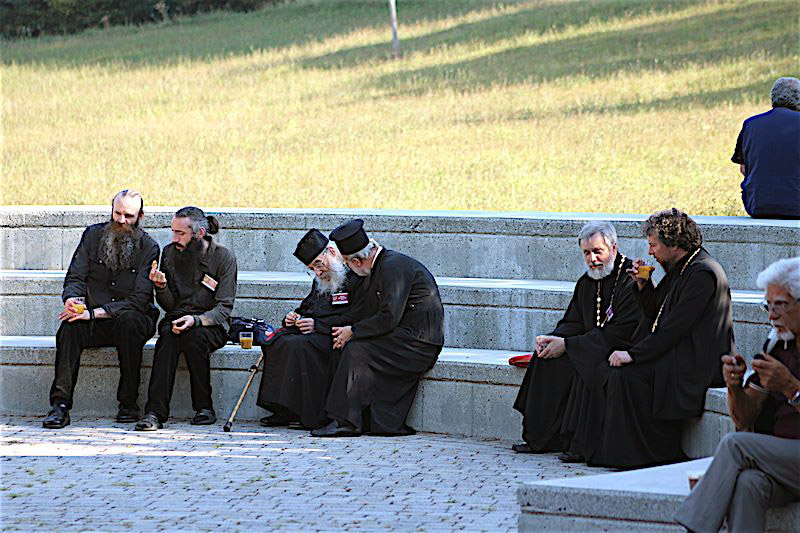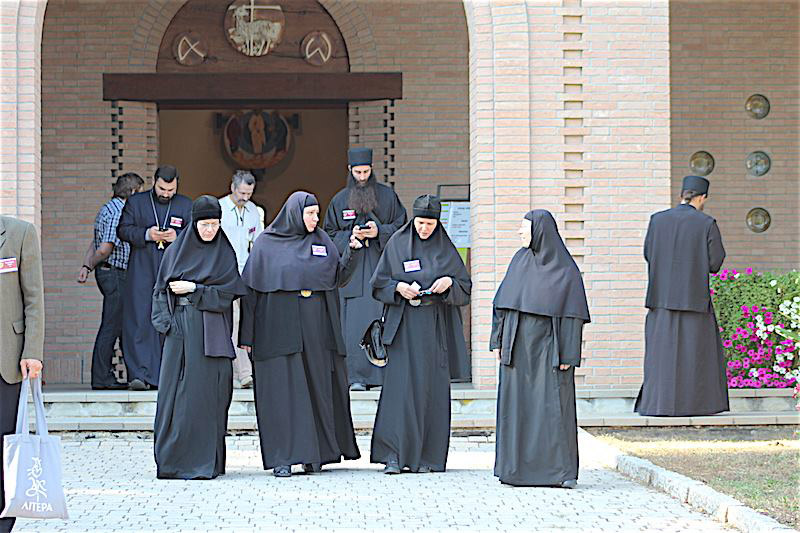News from the 24th International Ecumenical Conference on Orthodox Spirituality in Bose
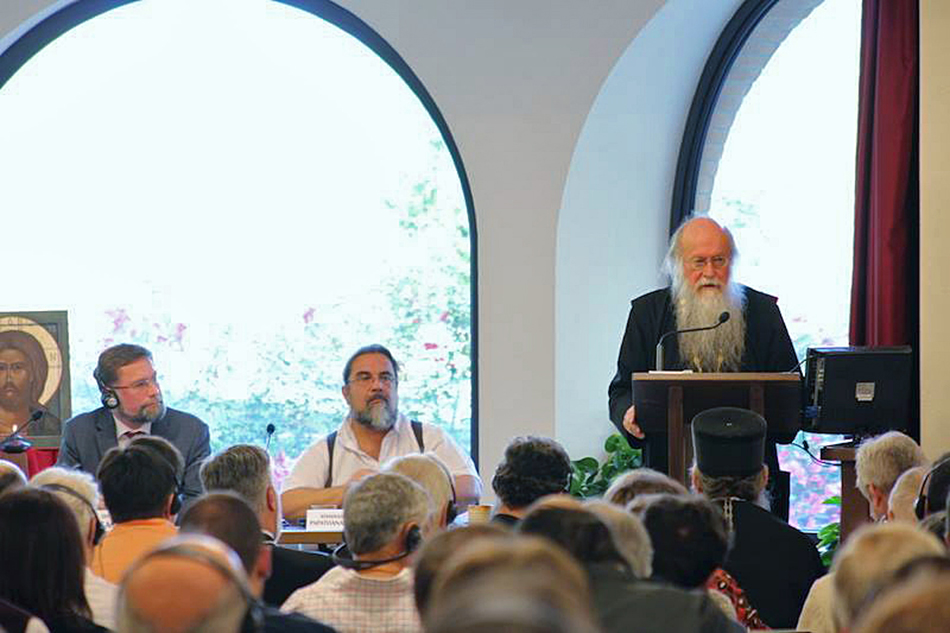
Representatives of local Orthodox Churches, the Roman Catholic Church, and Protestant communities attended the conference, as well as theologians and ecclesiastical historians from Italy, Greece, the United States of America, Great Britain, Switzerland, Russia, Ukraine and other countries. St. Philaret’s Christian Orthodox Institute was represented by Vice-Rector Dmitry Gasak and lecturers Oleg Ermolayev, Svetlana Chukavina and Lidia Kroshkina.
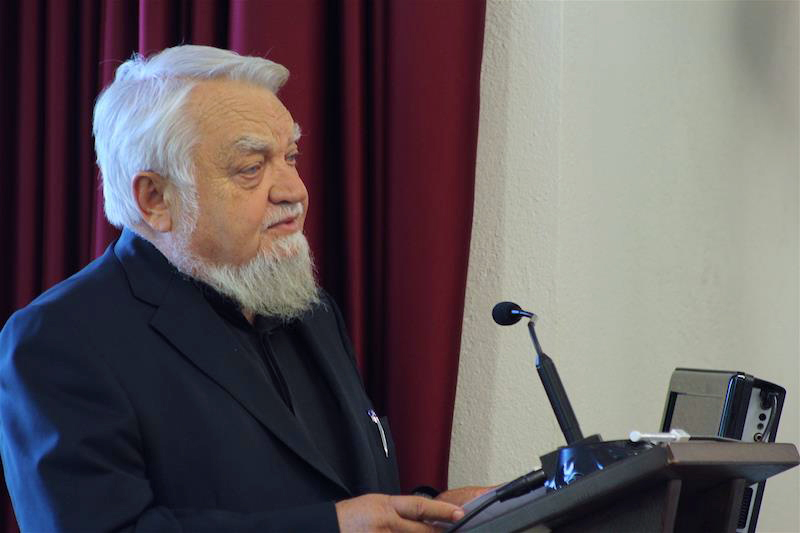
Enzo Bianchi, Prior of the Monastery of Bose
Enzo Bianchi, Prior of the Monastery of Bose, opened the symposium with the words, “we give thanks to the Lord, who has blessed us Christians from East and West to gather here again to reflect on the words of the Gospel – the final announcement of the Kingdom of God and the Word of the Cross”.
A number of churchmen sent their greetings to the conference organizers and participants. These included: Patriarch of Constantinople Bartholomew I, Patriarch Theodore II of Alexandria and all Africa, Patriarch Daniel of Romania, Archbishop Anastasios of Tirana and Albania, Metropolitan Chrysostomos of Cyprus, Metropolitan Hilarion of Volokolamsk (Head of the Department for External Church Relations of the Patriarchate of Moscow), Metropolitan Onuphrius of Kiev, Secretary to Pope Francis Monsignor Pietro Parolin, Archbishop of Canterbury Justin Welby, and Pastor Olav Fykse Tveit, who is General Secretary of the World Council of Churches.
The programme of the four-day symposium included sixteen papers on various theological and ecclesial-historical aspects of martyrdom.
One of the central presentations, written by the Patriarch Youhanna X of Antioch, was entitled “The Blood of the Martyrs Seeds Communion”. This paper was read by the Patriarch’s representative, and focussed on how suffering in hope never fades. The history of the Church is rich in examples of how such transfigured suffering brings abundant harvests on Christ’s wheat fields. Professor Athanasios Papathanassiou, a lecturer at the Hellenic Open University in Athens, described one such example in his presentation “I am the wheat of God” (St Ignatius of Antioch): the Eucharistic and Communal Dimensions of Martyrdom”. The speaker demonstrated that for St Ignatius of Antioch martyrdom was the ultimate expression of the Eucharistic sacrifice.
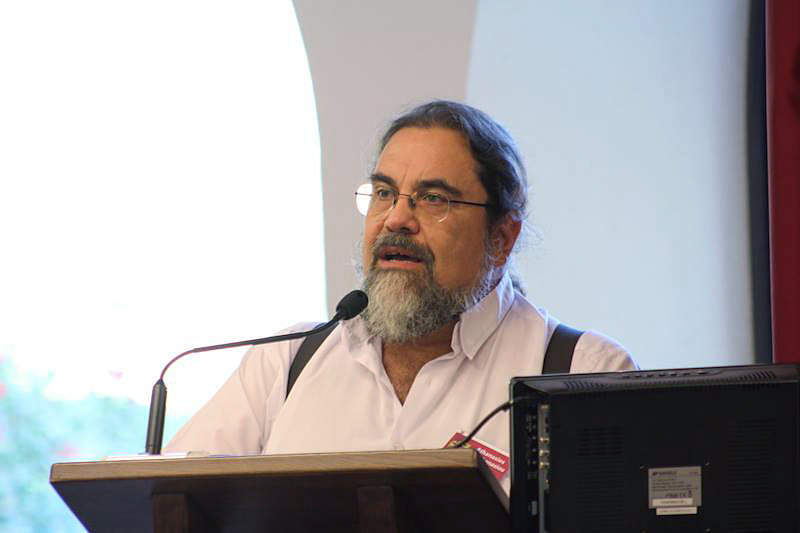
Professor Athanasios Papathanassiou
True martyrdom also means participation in Christ’s gift of life to all men, and extends beyond any borders. Such an understanding may be the only satisfying answer to the difficult question of martyrs who have suffered at the hands of Christians from other confessions. Andrew Louth, a professor from Durham University in the UK, presented on this subject, focussing on Maximus the Confessor and Pope Martin I.
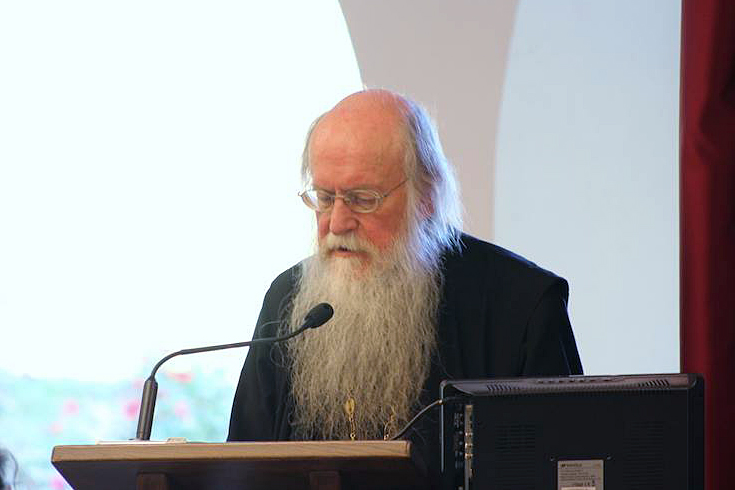
Fr Andrew Louth
Both Fr Kirill Kaleda, who is Rector of the New Martyrs and Confessors Church in Butovo, and Bishop John Stroyan of Warwick, spoke about contemporary martyrs from different churches. Christians who belonged to a particular local church and who suffered in a well-defined historical context are martyrs of the whole Church. Their death is a sign of belonging to the same Lord – to Jesus Christ.
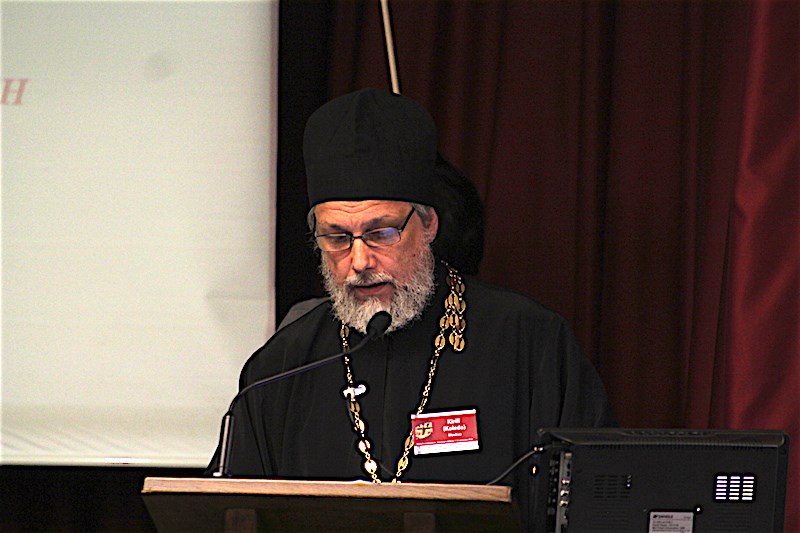
Fr Kirill Kaleda
Other papers presented at the conference included:
“The Spirit as Source and Support of the One Christian Witness”, by Archimandrite John Panteleimon (Manoussakis), a lecturer in Philosophy at Holy Cross Greek Orthodox College in Boston;
“‘Blessed are you when people persecute you on my account’ (Mt 5,11): Jesus’s Sayings about Persecution”, by Ekaterini Tsalampouni, a lecturer in New Testament at the Faculty of Theology at the Aristotle University of Thessaloniki;
“‘We are All One in Christ.’: Martyrdom and the Unity of the Church in St Ambrose and the Latin Fathers in the Fourth Century”, by Georgy Zakharov, a lecturer in Church History and other historical disciplines at St. Tikhon's Orthodox University for the Humanities;
“A Community under Persecution: Father Alexander Glagolev (1872-1937)”, by Konstantin Sigov, the Director of the "Dukh i Litera" Publishing House;
“The Testimony of Love and Mercy of St Elizabeth Feodorovna”, by Lydia Golovkova, a research fellow at St. Tikhon's Orthodox University for the Humanities;
“Persecution for Christ’s Sake as the bond of Communion: Monk Nicolae Steinhardt and his Diary of Happiness”, by Bogdan Tătaru-Cazaban, Romanian Ambassador to Vatican.
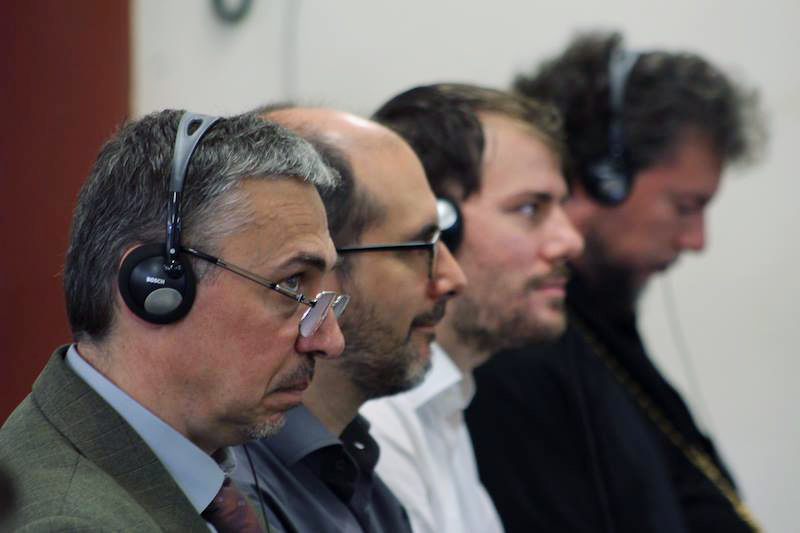
In summing up the results of the conference, Luigi d’Ayala Valva from the Monastery of Bose noted that all the papers pointed to the image of a martyr as one who by example encourages us to “an exodus from the self” and to victory over egocentrism, which is “the source of all heresies,” according to Archbishop Anastasios of Albania. Therefore, the memory of the martyrs of any church is a call to communion and mutual responsibility for all Christians.
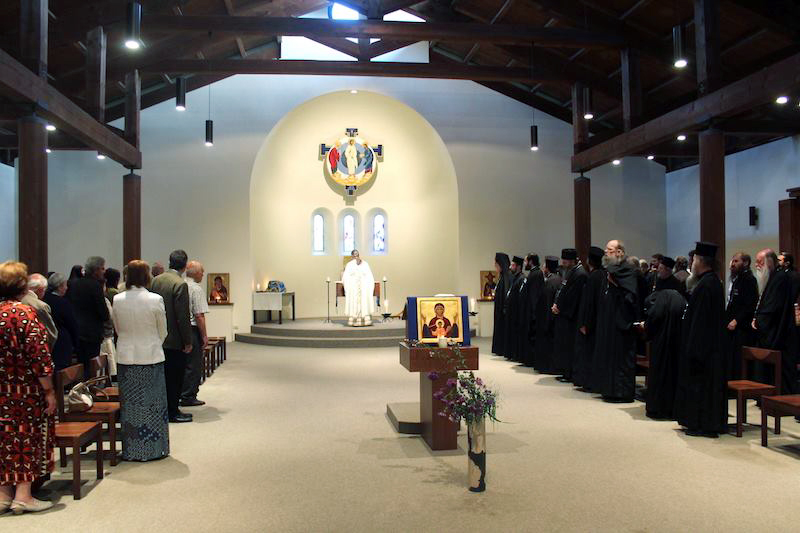
The Orthodox Divine Liturgy on the feast of the Nativity of the Blessed Virgin Mary, Athenagoras (Fasiolo) celebrating
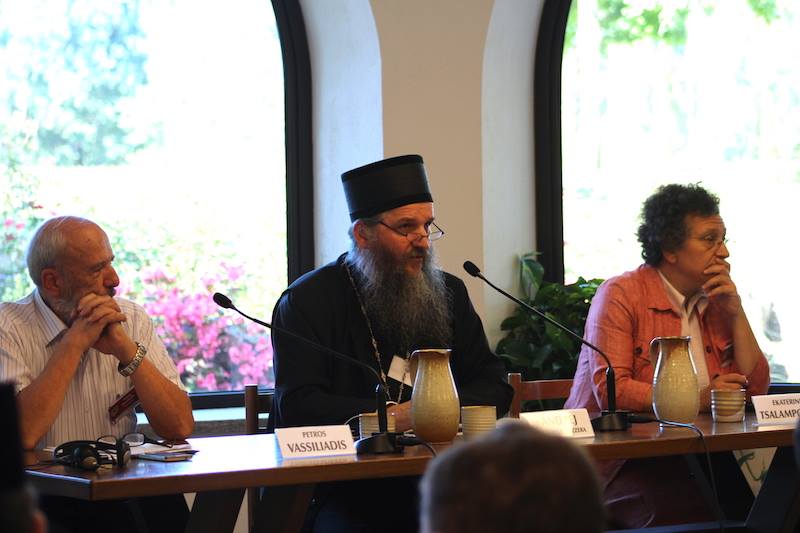
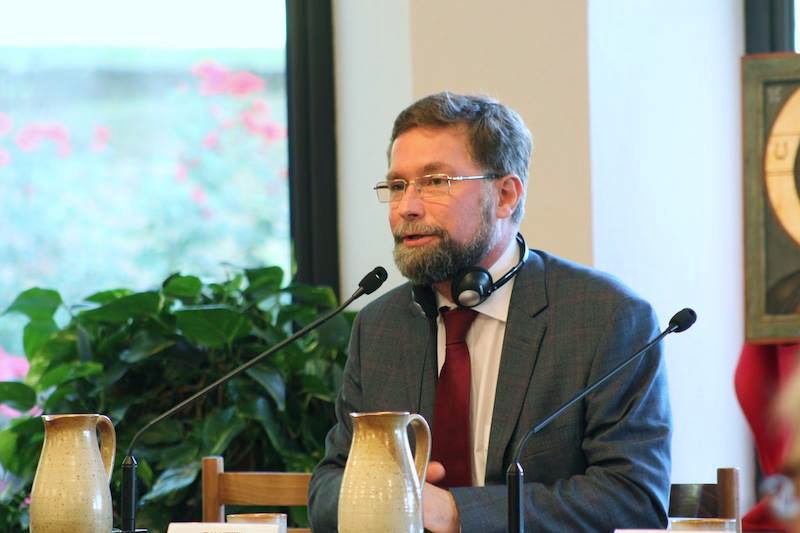
SFI Vice-Rector Dmitry Gasak moderating one of the conference sessions
